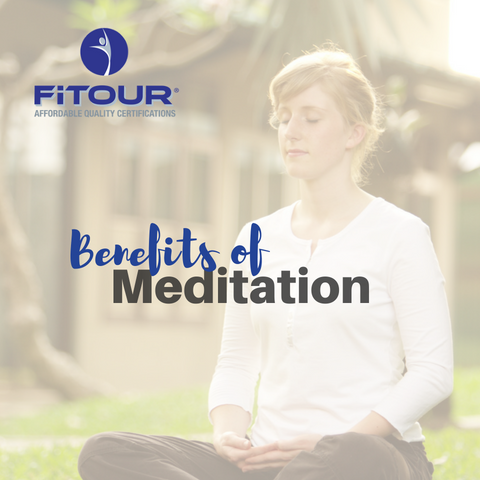Submitted by Melissa Vidito on

Meditation is the act of stilling the mind into a state of total absorption or concentration. This practice is challenging for most, but with practice it can be accomplished and mastered. Meditation is the beginning of a spiritual path with many health benefits.
Meditation relieves stress. The mind is in constant activity. From the moment the day begins until bedtime, the brain is occupied. Meditation is often performed with focus on one mantra, a statement or sound repeated to aid in the practice. A mantra gives the brain a focal point and allows the extra, often spinning, thoughts to rest. In this restful state, the mind is better able to manage and evaluate ever changing lives. The practice of meditation carries over into daily life and over time allows for more controlled emotional reactions, clearer evaluation of stressors, and the ability to better cope with worry.
Meditation also improves concentration by expanding the minds ability to focus. Often, while working or reading the world carries on, loudly. The ability to tune out those distractions is often quite hard. With the trained mind of meditation, those distractions fade into the background and attentiveness to tasks improves.
Blood Pressure is also improved by incorporating meditation into daily practice. Stress triggers the release of a hormone (adrenaline) that causes the body to negatively react: the pulse and blood pressure increase. By including the practice of meditation the body is better equipped to manage stress and thus less likely to release adrenaline. According to the American Heart Association, meditation can help those with high blood pressure focus on stress relieving techniques and become better equipped to cope.
The benefits of incorporating meditation are incredibly valuable to a long, healthy life. It is best to find a quiet and soothing, dimly lit area of the home to practice. Choose a time of day that is best suited for soothing, peaceful silence. Often early morning is the best time for in home practice. The children are still sleeping, the day is yet to unfold, and the sun is soothing. Choose a comfortable position and relax the mind, eyes, jaw and tongue. For beginners, focus at first on the Breath Counting Technique. Breathing naturally, count the breaths one to ten (one complete inhalation and exhalation counts as one) until you begin to lose the count and can simply focus on the breath. Try this for seven days and then explore the Trataka Technique or the Candle Technique.
MV
